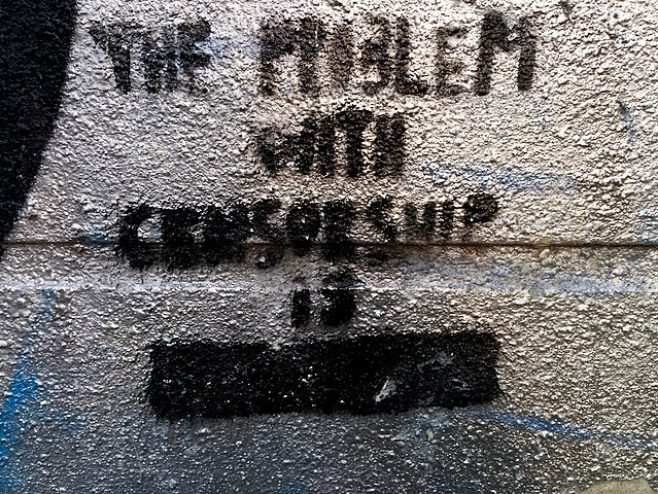What are meta communications?
A new digital subculture is emerging which challenges communications orthodoxy and traditional, top-down public relations. I call it ‘meta communications’.
It has nothing to do with Facebook.
Long before Mark Zuckerberg co-opted ‘meta’ as the name for his ever-expanding tech grey goo, meta existed in two nerd domains: in competitive computer gaming, where meta means ‘the unofficial but agreed upon strategy’; and in coding, where ‘meta’ is used as a prefix for coded descriptions or definitions. In both cases, meta is unseen (literally) by ordinary folk, but agreed upon by those who know.
Meta communications are not noticed by ‘normal’ people. Meta communications are unofficial, beneath the surface, and in the comments section. Meta communications use obsfucated language. They are democratised, decentralised, and sometimes rebellious. And they often reveal an underlying truth.

Let's Go Brandon
A perfect example of meta communications is the anti-Joe Biden meme ‘Let’s Go Brandon’, which first emerged on October 2nd, 2021, when during a televised interview with race winner Brandon Brown at Talladega Superspeedway, an NBC Sports reporter incorrectly described the crowd’s “F*** Joe Biden” chant (possibly on purpose, to avoid embarrasing the President) as ‘Let’s Go Brandon’.
Ever since, ‘Let’s Go Brandon’ has been code for “F*** Joe Biden” and it has been chanted in football stadiums, used in chart topping rap songs, and posted tens of thousands of times on social media. If you know, you know.
At first, Biden’s press team pretended not to know. They buried their heads. That’s all they could do. In the end, Biden took it as a joke. Perhaps humour is the only way to counter meta communications.
The Rings of Meta Communications
Amazon Studios didn’t get the memo.
When their first ‘Lord of the Rings: The Rings of Power’ trailer was uploaded to YouTube in February, the video received one of the worst “ratios” for an entertainment product in YouTube history, a colloquial, social media term for something being “terribly unpopular”. It currently has 1.9m dislikes to 131,000 likes.

The reception must have sent shudders down the spines of the executives tasked with launching the most expensive TV show in history. Not that any passing member of the public would have noticed this storm in Middle Earth. Why? For two reasons.
One, no one can see how many dislikes the trailer has received because YouTube hid the dislikes counter across the platform last November (a Chrome extension disables the cloak).
At the time of removing the feature, which is undoubtedly a useful consumer information device, YouTube claimed it was to protect small creators. That seems utterly absurd when the Rings of Power trailer now has 131,000 likes but apparently no dislikes. ‘Ordinary’ consumers who watch the trailer will assume the show is incredibly popular, and buy an Amazon Prime subscription to see what the fuss is about. That’s of course, precisely the point.
Secondly, the vast majority of the 52,000+ comments beneath the Rings of Power trailer are overwhelmingly positive because YouTube removed most of the critical comments; and because the public pushed back at the censorship with a meta communications strategy: avoidance speech.
Avoidance Speech
This is the sociolinguistic phenomena where restricted speech is creatively replaced by permissible speech. ‘Let’s Go Brandon’ is a prime example of avoidance speech, as banned words have been replaced phonetically or rhythmically. Euphemisms and memes are also examples of meta communications avoidance speech.
In the case of the Rings of Power trailer, the vast majority of the comments are faux positive. They absolutely reek of sarcasm, and feature hilarious, nuanced, film and pop culture references that ‘normal’ people and censorship algorithms won’t catch. If you know, you know.
The most popular comment, which was so elegant and so close to the bone that it was replicated tens of thousands of times in every conceivable language, was a direct quote from JRR Tolkien himself: “Evil cannot create anything new, they can only corrupt and ruin what good forces have invented or made.”
Amazon didn’t see the funny side of that quote, and claimed they were being attacked by bots. The Big Tech algorithm deleted all mentions of it. So the rebels responded, meta-like. Now there are 52,000 unbearably positive comments. You can’t delete those, can you?
Here’s one, which is typical: ‘When Galadriel tells Sauron "Get to the choppa!!" I was paralyzed with chills. It's truly Tolkin' time’.
And another: ‘When Sauron hands out the rings and then starts singing "never gonna give you up, never gonna let you down" that really hit me.’
Or my favourite, simply because of its absolute randomness: ‘The scene where Elrond says, “Sauron, I am your father” and then steals the nuclear codes to Gondor is truly peak cinematography… they really bring Tolkien’s story to life.’
It would not be an exaggeration to say the trailer has been memed to death. But you’d never know. Unless you know. That’s meta communications.

The emergence of meta communications could be characterised as an insubordinate pushback against spin and censorship online. It almost certainly aligns to the public’s growing awareness of big corporate influence across both legacy and social media.
And it is Big Tech’s attempt to control what speech is permitted, that has resulted in creative meta workarounds.
Meta communications reminds me of that line from Star Wars, when the rebel Princess Leia is captured by The Empire. “The more you tighten your grip,” she says, “The more star systems will slip through your fingers.”
And just like The Force, meta communications is all around us. If you know.

